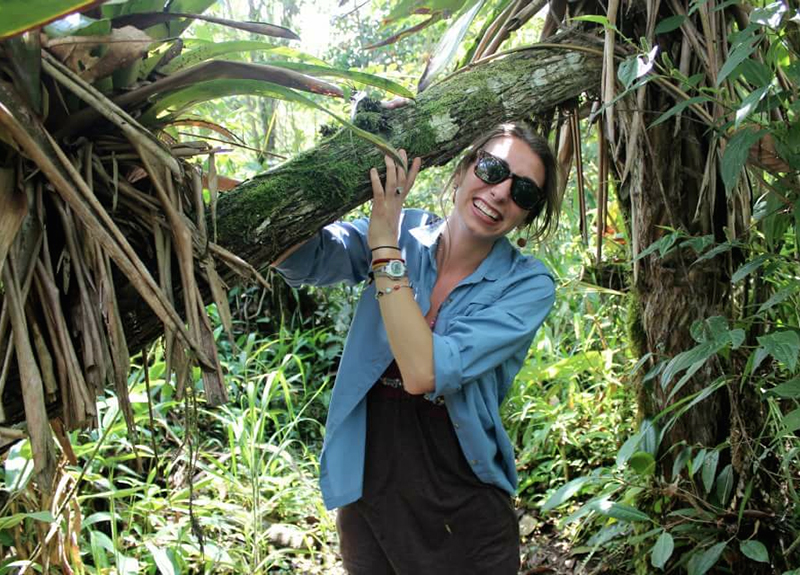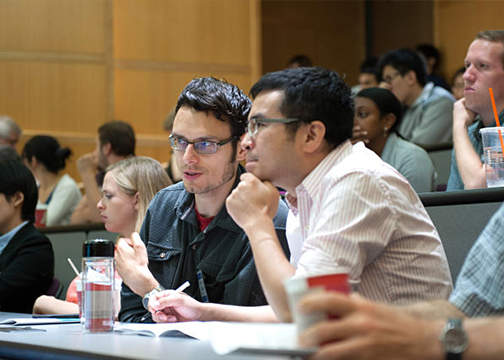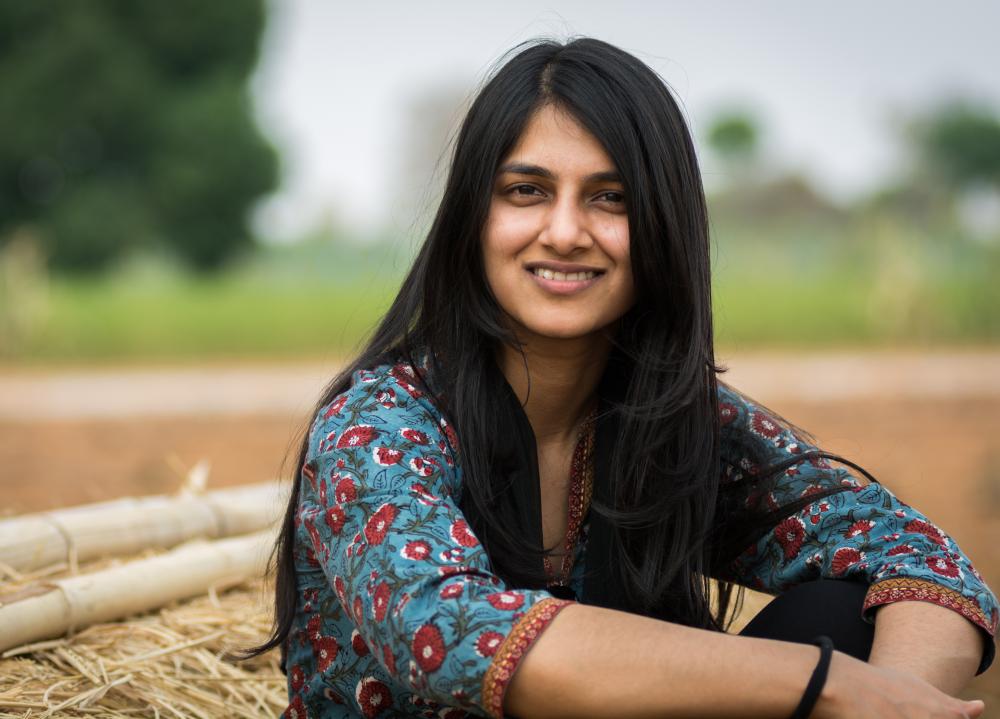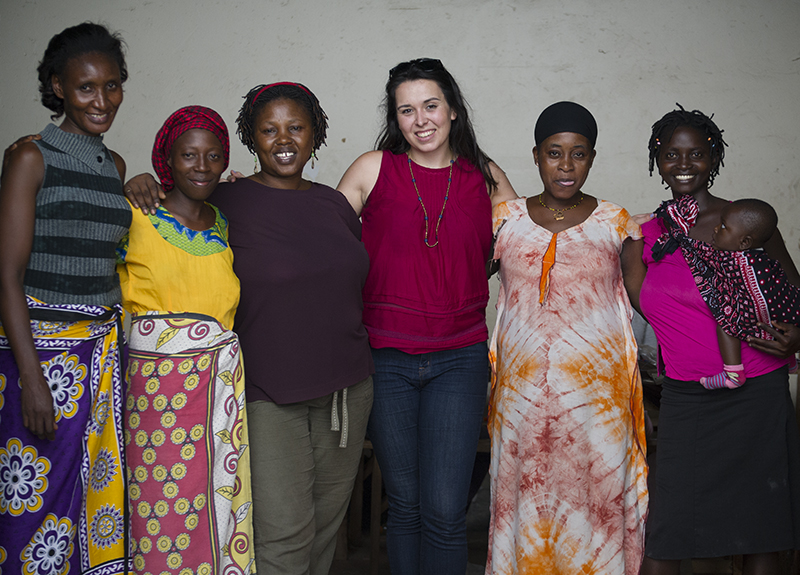In early 2016, ISEN launched the Resnick Family Social Impact Program, which supports student projects that address significant local and global challenges in sustainability and energy. The Program, seeded by a generous $500,000 gift from Paula Stamler Resnick (WCAS ’86) and Ira Resnick, bridges resource gaps between research and solution ideation, proof-of-concept work, and testing methods for implementation-at-scale.
Over the next year, the newest Resnick Family Social Impact Fellows will travel around the world - from Kenya to the Caribbean - to implement social impact projects. From improvements in lithium extraction for the batteries that power our electronics, to scaling the consumption of sustainable crops and working with female artisans on a cooperative business model, these fellows demonstrate a passion for enacting positive, sustainable change in the world.
Caleigh Hernandez
CEO, BEST FOOT FORWARD
 Caleigh Hernandez is a 2014 Clinton Global Initiative University alum and the CEO of Best Foot Forward, a social business dedicated to empowering female African artisans working in the shoe industry. Following publication of this article, Best Foot Forward is now known as RoHo
Caleigh Hernandez is a 2014 Clinton Global Initiative University alum and the CEO of Best Foot Forward, a social business dedicated to empowering female African artisans working in the shoe industry. Following publication of this article, Best Foot Forward is now known as RoHo
Caleigh Hernandez (WCAS ’15) received $25,000 from the Resnick Family Social Impact Fund to support her social business, Best Foot Forward (BFF), dedicated to empowering female African artisans working in the shoe industry.
The BFF business model creates US markets for high quality goods created in Malindi, Kenya, where terrorism and high unemployment serve as impediments for working women. In just two short years, BFF’s female artisans have seen their wages increase by 125 percent, which is 50 percent higher than industry standard. The company also invests in direct community development initiatives and seeks to provide its artisans with services such as health insurance, daycare, and transportation.
“Rather than decide what people need, we’ve adopted a more organic approach by working with our artisans to discover what would make the most meaningful impact on quality of life to them and their communities,” says Hernandez.
Lauren Audi
MASTER OF SCIENCE CANDIDATE, PLANT BIOLOGY AND CONSERVATION

Lauren Audi is a first year Master's student in the Plant Biology and Conservation Program, lead by Northwestern University and the Chicago Botanic Garden. Her work focuses on increasing food security and income opportunities in tropical regions through local partnerships in agricultural approaches. Lauren is mentored by Nyree Zerega, PhD Director, Graduate Program in Plant Biology and Conservation.
Lauren's Resnick project will address food security in the Caribbean by assembling and characterizing the diversity of breadfruit in the region. Internationally recognized as an emerging crop in the tropics, breadfruit compared favorable to major stapled (including wheat, rice, and corn) in both yields and nutritional content. Additionally, it is a low energy input tree crop requiring minimal maintenance. It can be produced and consumed locally on small and large scaled, and provides opportunities for local entrepreneurship. Over the course of a year, Lauren will collaborate with the St. Vincent Botanic Garden (SVBG) to conduct an ethnographic survey of breadfruit designed to assess community knowledge about the crop and its cultural, economic, and environmental use. She will work with local partners to provide resources to farmers to process breadfruit, and finally she will design and install a breadfruit germplasm and agroforestry demonstration in collaboration with the SVBG.
Peter Hosbein
SOPHOMORE, MATERIALS SCIENCE

Peter Hosbein is a second year undergraduate student in the Materials Science department at Northwestern, working in the Poeppelmeier Lab. His Resnick project tests the viability of inorganic ion exhange for lithium extraction, which could make the process more efficient, and have broad-scale implications for products ranging from smart phones to electric vehicles.
Lithium ion batteries are the most efficient and longest lasting batteries available today and demand for lithium outstripped supply in the last two years. Currently, most lithium is produced through evaporation of small salt lakes in the Atacama Desert, with the help of harsh chemicals and large amounts of locally-sourced freshwater.
Selective ion exchange is one proposed alternative to current extraction methods. It is a chemical reaction that replaces one ion in a lattice with another ion, and can be thought of designing a sponge that will absorb only red dye from a purple mixture that contains both red and blue dyes. Peter will test materials lithium-metal-oxide materials developed at Northwestern as candidates for selective ion exchange. He will test the materials in industrially relevant conditions that could be deployed in the Atacama, notably in conditions that minimize water consumption.






